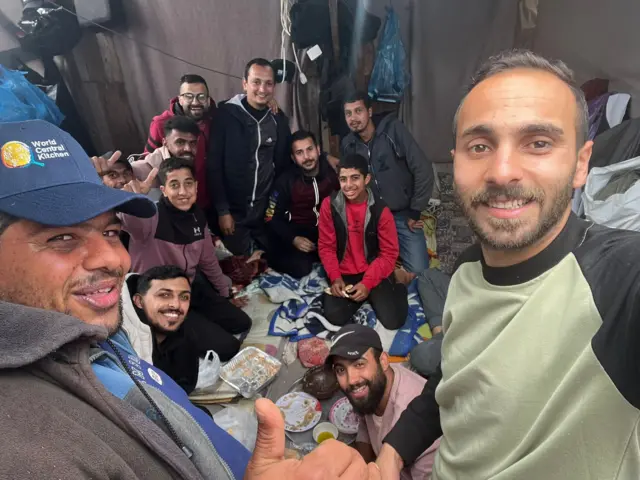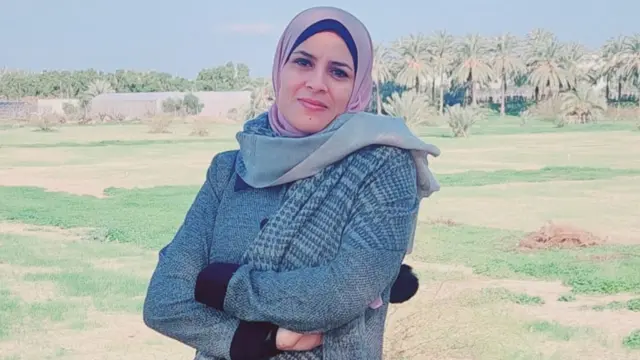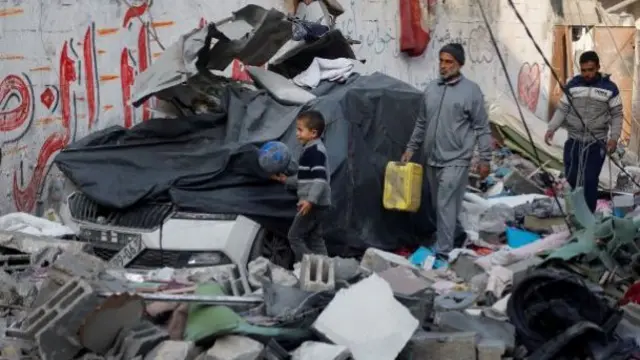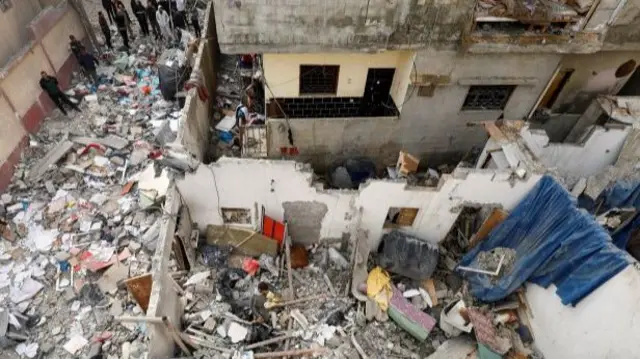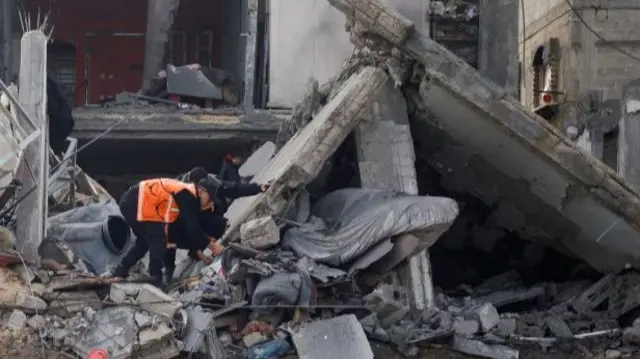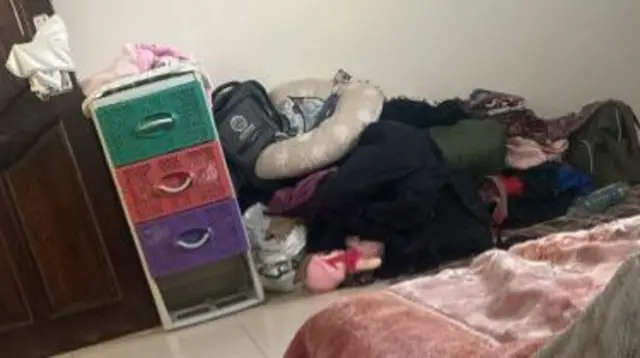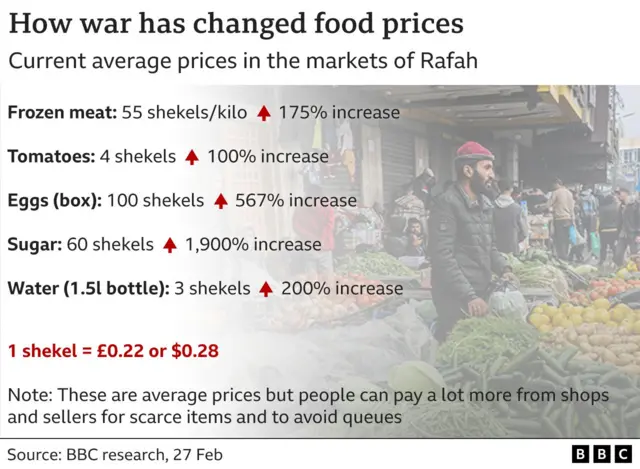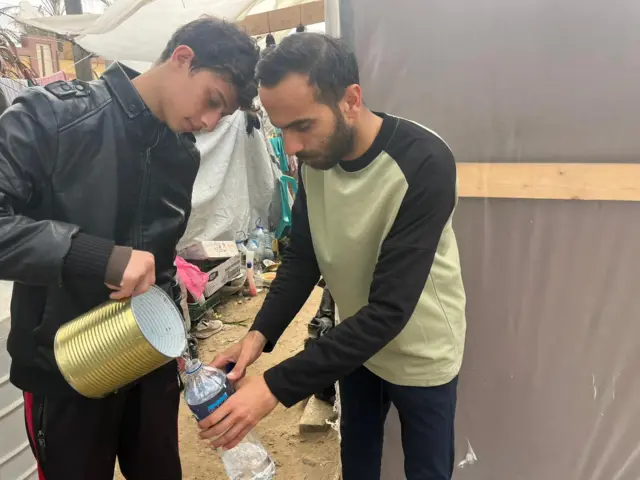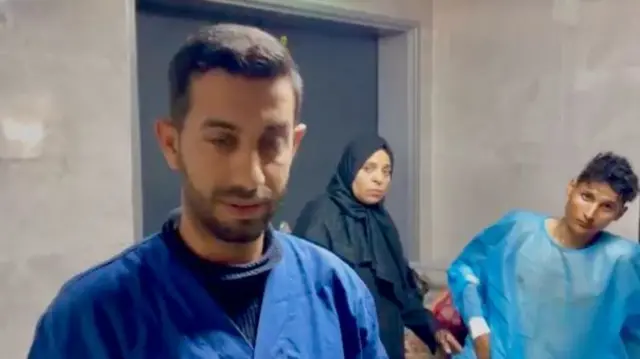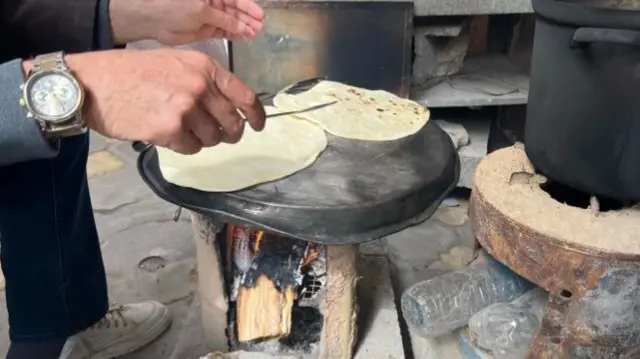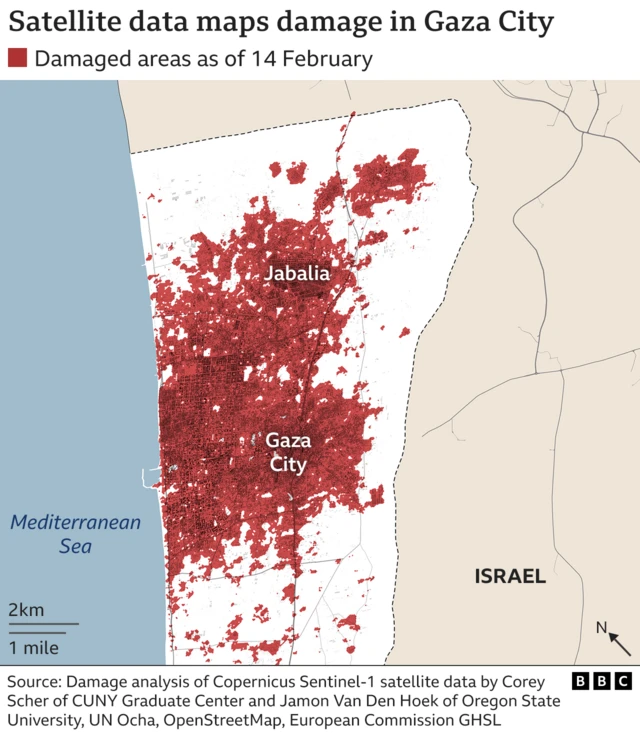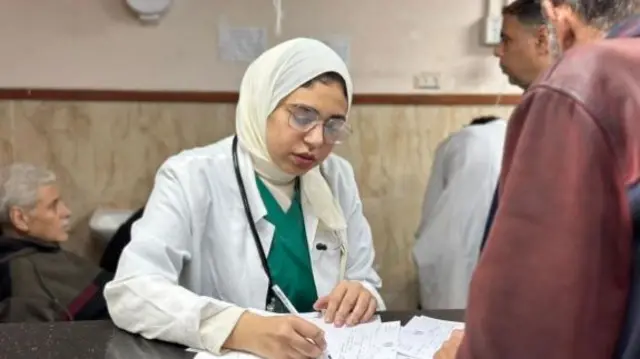'I don’t have anyone to help me with my daughters'published at 14:49 GMT 27 February 2024
We've been receiving some more updates from Rewaa Mohsen, a nurse and mother-of two in Deir al Balah, who told us her plans for the afternoon:
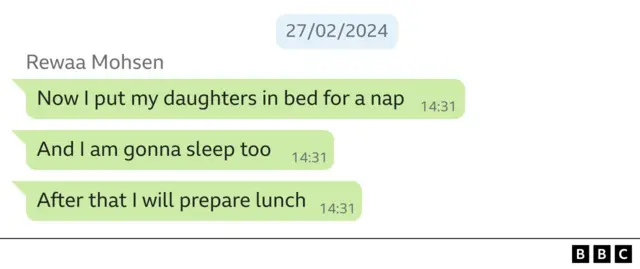 Image source, .
Image source, .Rewaa later followed up to tell us that things didn't go to plan, along with a video of her daughter, eyes wide open looking at the camera.
“She refuse bottle milk. I gave her on first month and after that it was not available so she is dependant on breast milk,” she writes in a message.
“My mum and only sister were killed in November and I don’t have anyone to help me with them.”


